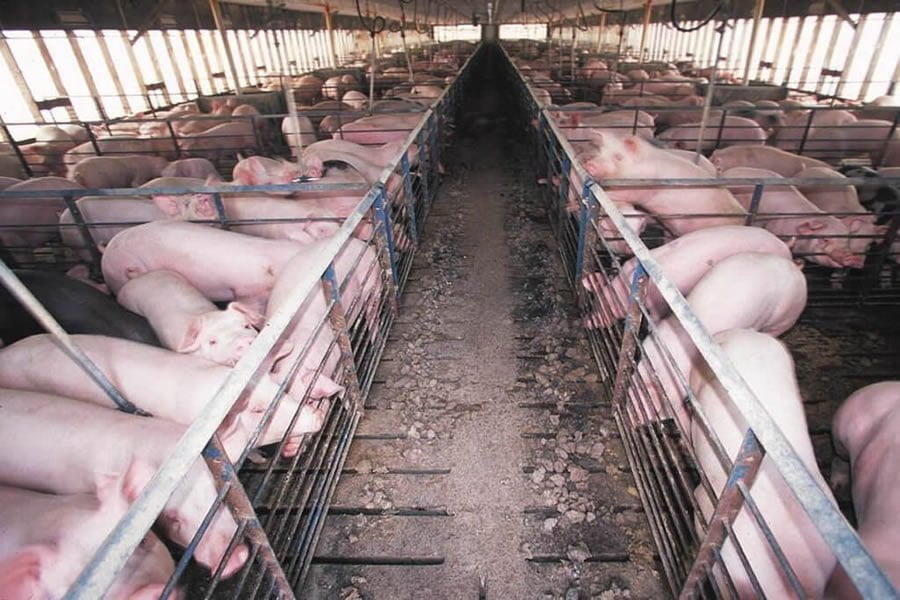Guide to Profitable Investment in Pig Farming
By Obinna Chima
Before Miss Oyinlade Adetutu graduated from the University of Ibadan in 2005, she had already made up her mind not to go into the already saturated labour market.
As a student of Agricultural Science, she had vowed to stick to her profession by investing in the sector in order to tap from the benefits that abound in it.
Though she specialised in fisheries, she got to know about pig farming and became attracted to it because of the reported high profit margin derivable from it.
Pig farming, according to her, is a business that can catapult an investor from the position of an employee to that of an employer of labour with high returns on investment within a little space of time.
She explains, As an undergraduate, I had already made up my mind that I would not search for any white collar job, but would practise what I studied so that I could also become an employer of labour. So, before I graduated, I had saved some money, which I used in acquiring a piece of land at Oke Aro, Ogun State, which I started with.
Adetutu, who started with just three piglets and one in-pig (a pregnant pig), but currently has about 150 animals, advises that anybody who wants to venture into pig farming must first acquire a piece of land.
The next stage will be to set up a pen where the pigs will be kept. Anybody starting on a small scale must erect at least a room measuring 12 square feet, where the pigs will be kept and separated according to their sizes.
Adetutu, who is the Managing Director, Wemimo Farms Limited, adds that availability of feed and water are the other challenges that any beginner would face.
She says, It is advisable that a beginner should be sure of his source of water and feed before erecting the pen because without water, pig rearing will be difficult. If the location is in a place were there is no river or stream to get water from, the farmer can first sink a borehole. Buying water is not ideal.
The farmer says further that pig farming requires a lot of patience and attention, noting that though she has attendants working on her farm, she usually arrives at the farm as early as 8am daily to supervise the sweeping of the pen, clearing of the waste and washing of the animals.
After washing the pigs, we then give them their breakfast. They feed on roughages and stalk which I buy from beverage companies. A truck of roughages goes for about N6,000 and I buy it twice a month because I feed them three times daily. They also feed on the stem of fluted pumpkin, yam, pineapple and the peel of a wide variety of edible items. That is one of the advantages of pig farming, she says.
She says that the farm employed the services of a veterinary doctor who visits the pig sty everyday to inspect and administer drugs on the animals.
Speaking on pigs’ reproductive process, she says the pregnancy of a sow (female pig) lasts about 115 days before it delivers. After delivery, the piglets are fed with breast milk for six weeks and from the tenth week, they become growers.
From the growers’ stage, Adetutu says the next stage is about to cross, noting that at that stage, the pigs are ready for mating, and if they become pregnant, each is capable of delivering at least 10 piglets.
She estimates that a beginner who wants to venture into pig farming can start with anything provided that he has a piece of land, but that a large scale farmer would need about N2.5m minimum to take off.
She says that people come from Edo, Delta, Bayelsa and Rivers states as well as some West African countries to her farm to buy the pigs, while some people around the site of the farm also come around to buy for domestic consumption.
Noting that operating cost is a major factor militating against the business, she calls on the government to intervene by way of assisting farmers with soft loans.
Corroborating Adetutu’s views, another pig farmer and the Chairman, Lagos State Council, Agricultural and Allied Workers’ Union of Nigeria, Mr. Obafemi Oyenubi, says pig farming is one of the cheapest agricultural businesses one can invest in because it is not highly capital intensive.
He says that beyond the erection of the pen, the beginner must be conscious of the type of species he acquires so that he would be able to control diseases when they break out.
Oyenubi advises that the location of the pen should not be close to where people live so that the health condition of the pigs would not affect them.
He urges beginners not to be laid back by the general believe that pig farming is a dirty business, saying that with a pen that has a cemented floor and proper attention given to the pigs, they can be made clean.
Apart from the challenge of sourcing for roughages, I don’t think there is any other one. The return on investment in the business is very high because a female pig gives birth to about 10 piglets twice in a year, and each piglet sells for about N3,500.
Culled From Punch

